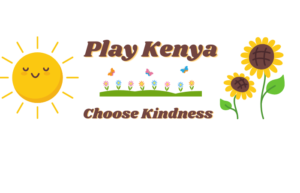From a child to an addiction
Working with young adults with addictions will never be easy. People talk about how they choose to take drugs; that they know what they are doing. But is that true?
Dr. Maté, renowned addiction expert, says we need to have a compassionate approach toward addiction, whether in ourselves or in others. His work show that addictions originate in trauma and emotional loss.

At Play Kenya we support his thinking’s and findings. If you want to help someone with an addiction, care enough to understand their story. Find the point in their lives where they were first alone in their fear and their trauma and that is where you work from. When we think about the Young People we support at Play Kenya, their trauma is often pre-birth or in the early weeks and months. Many of the young people have lived through fear and pain and isolation when others were learning to catch a ball, learn their pleases and thank you’s. Not our family. They were surviving the best they could in chaos and fear.
Fast forward 7 or 8 years and these babies were already sniffing glue and taking strong drugs to numb the pain of living. And society condemns them rather than connect to them. If we all want to be part of the war against drugs and the damage it wrecks on lives, we must Choose Kindness, and move closer, rather than turn our backs and walk away. Trauma damages in more ways that you can imagine. It lives in our lives and in our bodies. No-one makes the choice to turn to drugs to survive their own minds.
Many people associate childhood trauma with child abuse, but there are other stress-inducing and traumatic experiences linked to an elevated vulnerability to addiction, which include neglect, the loss of a parent, witnessing domestic or other physical violence, and having a family member who suffers from a mental illness.
Our Play Kenya family is made up of fear and loss and shame. We can’t change the past, but we can work to change the future. Standing Together until they can stand alone.
We readily feel for the suffering child, but cannot see the child in the adult who, his soul fragmented and isolated, hustles for survival a few blocks away from where we shop or work. Dr. Gabor Mate
